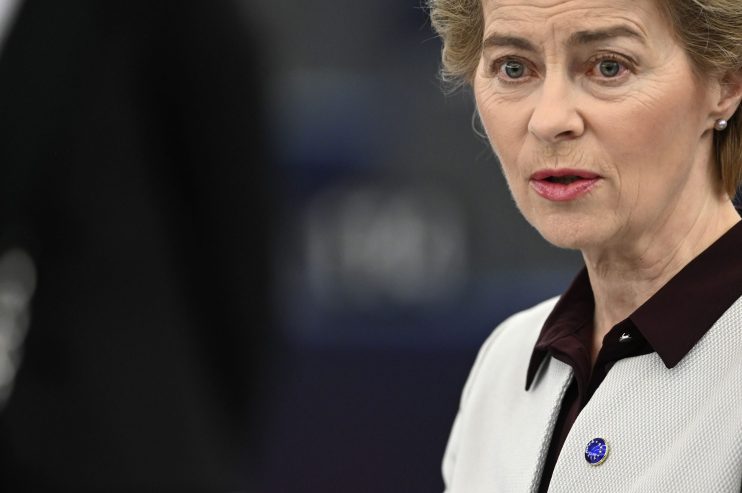European Parliament sets up more Brexit drama as it backs ‘dynamic alignment’

London looks set for another head-on collision with Brussels as the two sides gear up for trade talks, after the European Parliament said any deal must be based on two areas already ruled out by Downing Street.
This morning MEPs gave their backing for chief negotiator Michel Barnier to press the case for a post-Brexit level-playing field and “dynamic alignment” of cross-border rules.
“Given the size of the UK’s economy and its proximity, future competition with the EU must be kept open and fair through a “level playing field”, which means guarantees for equal rules on, among other things, social, environmental, tax, state aid, consumer protection and climate matters,” the Parliament said today.
“To maintain quota-free, tariff-free trade relations, the British government should pledge to update its rules on, for instance, competition, labour standards and environmental protection, in order to ensure “dynamic alignment” of EU-UK laws.”
This was explicitly ruled out by Boris Johnson during a speech he gave last in central London Monday following warnings by Brexiters including former trade secretary Liam Fox that dynamic alignment would be “incompatible with the concept of Brexit”.
There is however one area that both sides agree on – the UK will not remain part of the Single Market or customs union.
Brexit trade deal: the key sectors
The European Parliament wants an agreement on fisheries to be struck by June 2020 as the first condition for the entire UK-EU trade deal.
If the UK does not comply with EU laws and standards, the Commission should “evaluate possible quotas and tariffs for the most sensitive sectors as well as the need for safeguard clauses to protect the integrity of the EU single market,” MEPs agreed, particularly on food and agricultural imports “which have to strictly comply with EU rules”.
“I want to make it clear to certain people in the UK that they should not kid themselves. There will not be general open-ended ongoing equivalence in financial services,” he said. “We will keep control of these tools and we will retain a free hand to make decisions.”
Barnier added: “We are not negotiating on these topics with the United Kingdom, rather we are checking there is consistency and wherever possible, we will grant equivalence on particular sectors of the financial industry. That is what we do with Canada, with US and Japan, and it works, so I don’t see why it wouldn’t work with the UK.”
Other priorities include citizens’ rights and mobility of persons, data protection, the Irish border, the role of the European Court of Justice in settling disputes, EU programmes and agencies, foreign policy and security matters.
Gibraltar should not be included in the scope of the agreements to be concluded, and any separate agreement will require the Spanish government’s prior approval, MEPs said.
This mandate, which is based on Barnier’s recommendations laid out yesterday, now need to be signed off by EU27 at the next European Council on 25 February, with talks expected to begin early next month.